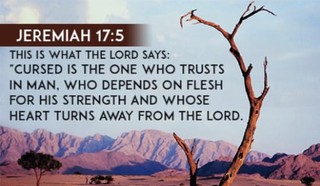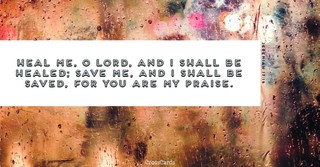
- Recent Translations
- All Translations
Jeremías 17:26
Share
Settings
Jeremías 17:26 Meaning and Commentary
And they shall come from the cities of Judah
That is, men shall come from all parts of the land of Judea to the city of Jerusalem, and to the temple; especially at the times of their solemn feasts, three times a year, as the law directed: and from the places about Jerusalem;
and from all the towns and villages adjacent to it, such as Bethany and Bethphage, and many others: and from the land of Benjamin;
which tribe continued with the tribe of Judah when the rest revolted, and was now with it, and still would continue with it, and join with it in religious worship, were they careful to observe what the Lord commanded them: and from the plain, and from the mountains, and from the south;
these respect the several parts of the land of Judah, which, the Jews F9 say, was divided into three parts, the mountain, plain or champaign country, and the valley: the "plain" was that part where Lydda and other cities were; the "mountain" is the same with the hill country of Judea, ( Luke 1:39 Luke 1:65 ) ; and the "south" the southern part of the land, that which is called the wilderness of Judea, of which see ( Joshua 15:20-63 ) . The above Jewish writers say F11, that from Bethhoron to Emmaus was the mountain or hill country; from Emmaus to Lydda the plain; and from Lydda to the sea the valley; now, from all these places should persons come to the temple: bringing burnt offerings and sacrifices, and meat offerings and
incense;
sacrifices and offerings of all sorts, according to the law; hereby signifying, that if the sabbath was observed, as it would go well with the kings and princes of Judah, they would keep a splendid court, and have a numerous retinue, so it would be well with the priests that served at the altar; sacrifices would be brought to them; of which they would have their part, as well as God have glory by an obedience to his laws; and, besides these, other sacrifices would also be brought, as follows: and bringing sacrifices of praise unto the house of the Lord;
thank offerings for mercies received and deliverances wrought, as well as sacrifices for sins committed; and this was one sort of the peace offerings, ( Leviticus 7:11-15 ) .
F9 Misna Sheviith, c 9. sect. 2.
F11 Hieros. Sheviith, foI. 38. 4.

